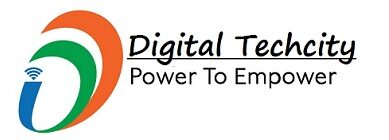In this advanced technology era, the world is getting more active and digitalized. Tech trend like Blockchain technology is being adopted in the renovation of multiple sectors like insurance, healthcare, supply chain management, and banking. Education is also a crucial aspect like agriculture, science, medicine, and all other sectors. Running and managing an educational institute is a complicated task.
Education sector challenges
- The world is transforming and education is becoming unavoidable. There are billions of students getting educated at different universities, schools, colleges, and institutions every year. Maintaining records of those students is a challenge.
- The record maintenance in a paper format becomes a time-consuming task when there is a need to view the student’s details, who studied in the institute 5 years ago. Looking across the old records and data takes more time.
- Certificate management of the students securely is hard and needs workers.
- Accounting is another challenging aspect of the education sector. It needs people and time to handle the institute’s financial activities. It includes calculating students’ fees, operating cost, and staff salary.
- Students’ scholarship monitoring is also a challenge because there are multiple students as well as several scholarships provided.
Such challenges in the education sector push it in a difficult spot. Fortunately, blockchain technology can help the education sector to overcome these difficulties. Click here to discover the ACS participation at Sigma fair on cryptocurrencies and blockchain.
How blockchain technology can help to overcome the education sector’s challenges?
- Blockchain will help to record paperless documents of the students, staff, and other operational paperwork. Thus, there is a reduction in paper document maintenance. Besides, the risk of losing or fabricating student records is completely avoided.
- Blockchain helps to save on paper and document printing costs as digital storage is provided. The effort and time taken to maintain paper documents are saved. Therefore, blockchain technology integration in education can turn into a saving tool.
- Blockchain offers data transparency as it is decentralized and supported by a widely distributed network. Every record is permanently stored in the blockchain network and is public and traceable.
- Using blockchain technology to calculate staff salaries and students’ scholarship is transparent and easy. The acceptance of cryptocurrency for tuition fee makes it more efficient as a secure payment device.
- Each blockchain transaction or inscription or code is exclusive, therefore it cannot be counterfeited or multiplied. Thus, copyrights stay accurate and digital rights-protected. Digital books need protection and the university library can benefit from the decentralized operating system to protect their intellectual property.
- Blockchain supports online courses as institutes can provide digital certificates with ease and connect with global people and students.
Blockchain technology can transform higher education. Every student’s credentials stay protected and payments in the form of cryptocurrency will be secure. There will be an increase in the value and importance of intellectual property rights. Adding new technology-oriented classes in the student’s curriculum will change them into clever and successful people.

